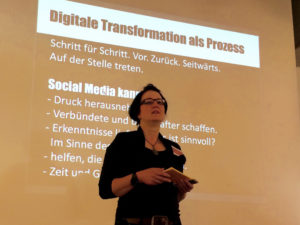- Draft remains below expectations
- Instead of clarity, new legal uncertainty looms
- Provision for Hosting providers unacceptable
The draft legislation on changes to the Telemedia Act publically released this week by the German Federal Ministry of Economic Affairs and Energy is supposed to clarify the legal requirements for Wi-Fi operators. This objective will not be achieved with the new draft. Furthermore, it contains provisions which could have a significant negative impact on Hosting providers. As a result, eco sees substantial need for improvement.
Draft remains below expectations
eco in principle supports the Federal Government’s initiative in their desire to create greater legal certainty for Wi-Fi operators, but is skeptical of whether this objective can be achieved with this draft legislation. “The draft legislation unfortunately remains below our expectations. I am skeptical of whether the proposed provisions will in reality lead to an improvement in the legal certainty for Wi-Fi operators,” summarized Süme, Director of Policy and Law.
Instead of clarity, new legal uncertainty looms
“Overall, there is still considerable need for improvement in the draft legislation. This is regrettable, as we had assumed that the government had had enough time to take up and improve the numerous criticisms of the draft,” in the estimation of Süme.
The proposed provision that should clarify the fact that Wi-Fi operators are also access providers in terms of the Telemedia Act is fundamentally sensible. However, the draft makes the liability privileges regulated by it dependent on clarification and security measures. Rather than enabling simple and uncomplicated access to public Wi-Fi services, the proposed subscription and registration process will achieve the opposite, and will result in bureaucratic complexity. Instead of eliminating the existing legal uncertainty, this will create a liability risk for Wi-Fi operators. As a result, Süme doubts whether the draft legislation will lead to an improvement in legal certainty and contribute to the spread of Wi-Fi as a form of Internet access.
Provision for Hosting providers unacceptable
Further to this, the provision for Hosting providers proposed in the draft legislation is a point of criticism. This is supposed to provide clarification that particular storage services whose business models are fundamentally based on the violation of copyright cannot invoke the liability privilege applicable for Hosting providers. “It is completely unclear what should be understood under the term “risky services”. The presumption and the examples contain numerous undefined legal terms and unclear formulations. These do not contribute to any improvement in the protection of interests of rights owners and, through the change to the established liability framework, also have the disadvantage that they can lead to incalculable legal uncertainty for all Host providers,” says Süme. The proposed regulation would have a counterproductive impact on Cloud-based services in particular.
Germany currently has around one million publically accessible Wi-Fi hotspots at its disposal. Of these, merely 15,000 are in fact open and freely accessible hotspots that users can make use of without registration or identification. This the finding of an investigation carried out by eco – Association of the German Internet Industry e. V. into the status quo and the technical possibilities for public Wi-Fi in Germany. More information about this study can be found here: https://international.eco.de/2014/press-releases/eco-study-shows-great-potential-of-wi-fi-in-germany-so-far-untapped.html




